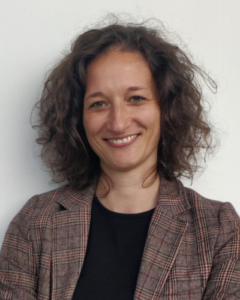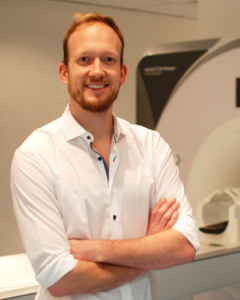- Award Details
- Laureates of the 2024 FENS EJN Young Investigator Prize
- Past recipients of the FENS EJN Young Prize Investigator Prize
In 2024, the winners of the FENS-EJN Young Investigator Prize are Dr Sara Bizzotto (FR) and Prof. Tobias Hauser (DE).
 Meet Dr Sara Bizzotto
Meet Dr Sara Bizzotto
Dr Sara Bizzotto is a Horizon2020 MSCA Research Fellow at Paris Brain Institute (France). After obtaining a PhD in genetics and neurodevelopment from Sorbonne University in 2016, Dr Bizzotto joined the lab of Christopher A. Walsh at Boston Children’s Hospital/Harvard Medical School. During her postdoc, she studied genetic mosaicism in the context of brain development and developmental disorders, as well as in the aging human brain. Dr Bizzotto contributed to proving that postzygotic somatic mutations trace cell phylogenies in human tissues, providing novel insights into human brain development. She also contributed to showing that somatic mutation in the aging human brain occurs with cell-type-specific mechanisms and rates. With her research, Dr Bizzotto wants to address the cellular processes of human brain development and the insurgence of neurodevelopmental disorders, especially focusing on genetic mosaicism and lineage tracing of cell phylogenies.
Meet Prof. Tobias Hauser
Tobias Hauser is a Professor of Computational Psychiatry at the University of Tübingen and Honorary Associate Professor at the Max Planck UCL Centre for Computational Psychiatry and Ageing Research, and the Wellcome Centre for Human Neuroimaging, University College London. He is interested in the neurocomputational processes underlying learning and decision-making, and how these go awry in developmental psychiatric disorders. Tobias investigates how cognitive biases in obsessive-compulsive disorder (OCD) can help us better understand the neurocomputational mechanisms underlying this disorder. His primary focus is the influence of neurocognitive development on the emergence of psychiatric disorders during adolescence. In his work, he combines neuroimaging, pharmacology, and computational modelling in youths and adults with and without mental health problems. Tobias has received several prestigious prizes in psychiatry, such as the Robert L. Fantz Memorial Award (2023), the Philip Leverhulme Prize in Psychology (2021), the Emerging Leaders Prize in Adolescent Mental Health (2018) and the Kramer Pollnow Award (2017). His work is supported by Wellcome, European Research Council, Royal Society, European Research Council, Carl-Zeiss Foundation, Leverhulme Trust, Medical Research Foundation, Jacobs Foundation, Brain & Behavior Foundation and the Max Planck Society.